THE Gleeson family might be turning off 10,000 lambs and 300 cattle a year from their 8000ha mixed-farming enterprise in southern NSW but its sheer size doesn’t hamper their quality control, writes Fiona Sheean, Weekly Times Now, November 30, 2015.
They place great emphasis on the quality of stock they produce and their dedication to selecting the right genetics has paid off in strong returns and by winning several competitions.
Dennis Gleeson, who runs the property at Wakool with his son, nephew and farm manager, entered a selection of their composite lambs in the hoof and hook competition at Swan Hill Show for the past two years and scooped the pool, winning first prize in each category for best pen, hoof and hook.
They have also won the carcass competition at Melbourne Show in the past with their composite lambs.
The beef herd is based on Te Mania bloodlines and the Gleeson’s are part of the Team Te Mania program, giving them access to the highest quality genetics, support programs and breeding guidance.
MIX IT UP
THE Gleeson’s Colligen Creek Station is a mixed-farming enterprise running 8000 composite ewes, 300 Angus cows, 2800ha of cereal crop and normally about 400ha of rice. This year rice is back to 80ha due to water availability.
“We are only sitting on about 13 per cent water on the Murray system,” Dennis said.
“With the dam so full and not to have any water is beyond anyone’s imagination really.”
All the country in the area is irrigation land with channels developed during the 1930s but due to declining water access many farms have been sold off and are now being run as dry blocks.
“There has only been one year in the 35 years of growing rice here where we didn’t grow any — that was in 2007 and we had two years of nil allocation,” Dennis said.
“We do a budget on rice and this year if you did that on $250 a megalitre for water you’d be crazy to grow it but I’m also a big shareholder in the rice industry so I have to look after it.
“We won’t make money out of it this year but hopefully we will keep it going for future years.”
Dennis said they didn’t always get a finish to the season so needed irrigation water to supplement.
“We used to get 100 to 150 per cent of our water but now we get excited if we get 50 per cent,” he said.
STOCK TAKE
DUE to the lack of water this year, the Gleeson’s have focused less on rice and fairly heavily on stock instead.
They have composite sheep, preferring them for the good growth, fertility and meat quality. Lambing percentages are at 135-140 per cent.
“We have now started putting Scottish Texels over the composite ewes so that way we can keep all the ewe lambs without going out to buy ewes,” Dennis said. “Once we get that Scottish Texel influence coming through it will be very exciting.” He said they weren’t like the Danish Texels “that are short and stumpy, these have good muscle and faster growth.”
While their lamb focus is on meat, Dennis felt their wool clip also sold well this year.
“Our wool made about 600 cents (a kilogram) or $1000 a bale plus $9 for skins, which in comparison to Merinos it’s selling quite well,” he said.
Four years ago Dennis bought a composite stud from Kismick West Composites near Corowa, NSW, and has been breeding his own rams for the past two years. Rams are currently for their own use but any surplus will be sold once numbers increase.
“We have had a lot of interest with people lining up for the rams but we haven’t got any for sale yet,” he said.
BEEF IT UP
AS PART of the Gleeson’s increased emphasis on stock, beef has become a bigger part of the business.
They have a full artificial-insemination program and have access to all the best bulls and Te Mania genetics at reduced prices through the Team TeMania program.
“They select the bulls for us and we go and inspect them,” Dennis said. “If we don’t like them we can put them back and pick another but they are great and always pick the bulls that are suitable.”
Dennis said he was impressed with the Te Mania cattle and the team. “It’s a good way of updating your herd and getting really good genetics quickly,” he said. “They are very progressive, forward thinking and terrific people, and they market things very well.”
The Gleesons also manage the neighbouring Werai Station, a 8000ha holding for the Bishop family from Melbourne. Werai runs about 250 Te Mania cows plus young cattle that are weaned from a property at Glenburn and trucked in.
“All up we AI 550 cows between the two properties,” Dennis said.
The majority of cattle are sold at 11-13 months and average 500kg liveweight.
Last year the Gleeson’s sold straight to Teys at Wagga Wagga, NSW, but this year Thomas Foods in South Australia bought them. They sell 130-150 steers a year and 50-60 heifers. The balance of heifers are AI’d and older cows are culled.
STRONG FOLLOWING
WARRNAMBOOL meat buyer Neville Guthridge has been in the stock agency and meat buying game for 40 years and has worked closely with Dennis during that time.
Neville currently works for Midfield and said the quality of cattle the Gleeson’s were now producing was magnificent.
“They are dressing out very well, all these things like marbling and yield and muscling are very important,” he said.
“Dennis is also able to class his cows and pull the superior performers out of them so the stock is more keenly sought after and they will attract premium prices.”
Dennis said it had been a terrific season for feed. They cut 1000 tonnes of silage and about 2000 big square bales of hay. They won several trophies for best lucerne feed analysis in the National Hay Competition.
On the flip side, Dennis said dryland crops were “a disaster”.
“Next year is looking fairly ordinary too for irrigation water so let’s just hope they get the El Niño wrong,” he said.
“We will just keep pushing the stock a bit and cut back on rice and cereals.”
AI program benefits Colligen Creek herd, The Land, January 2016, by Kristen Frost. Deniliquin beef producer Locky Gleeson, Colligen Creek Station, saw an opportunity in an artificial insemination (AI) program through Team Te Mania, Mortlake, Victoria, about five years ago.
- Team Te Mania member since 2011
- Calving period – August
- Beef Only




